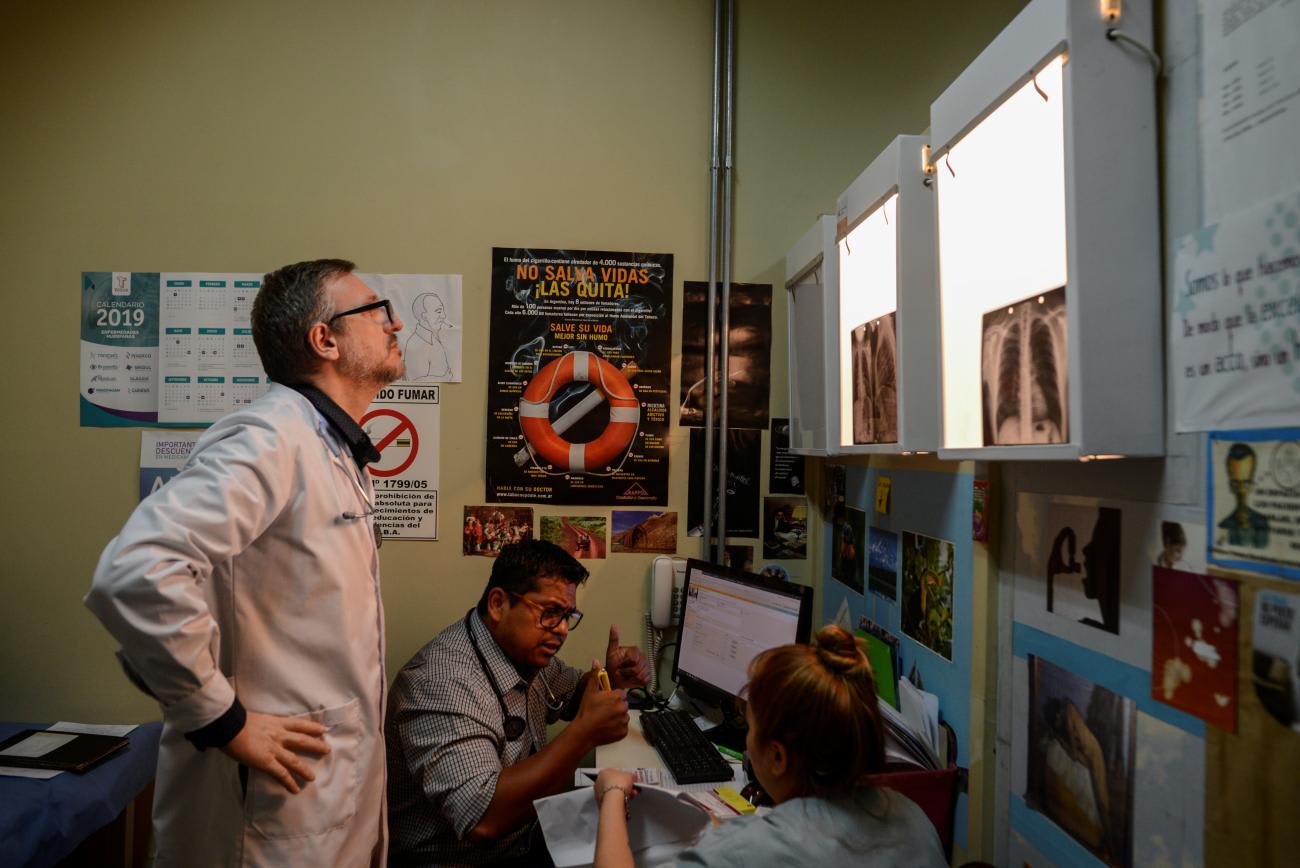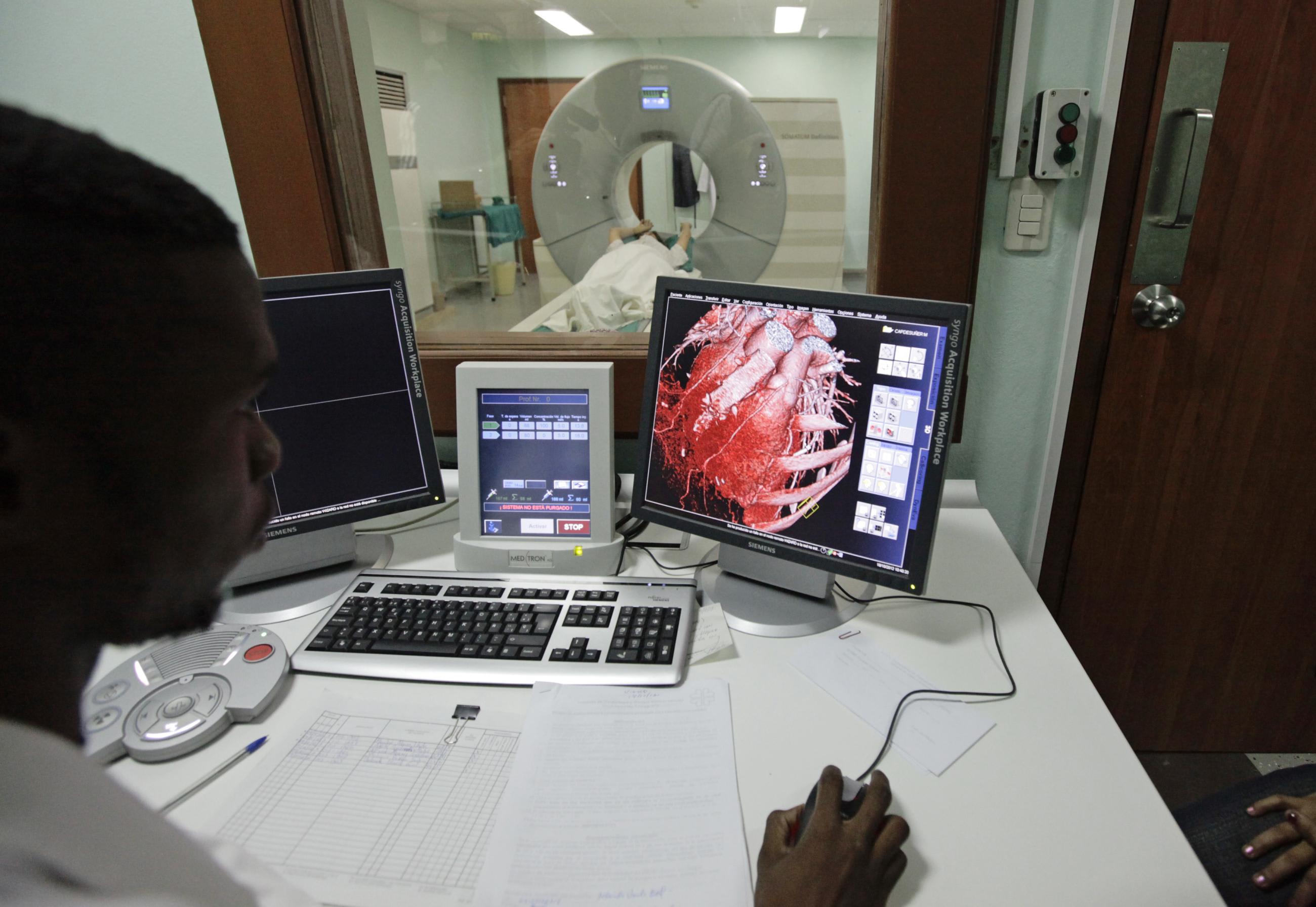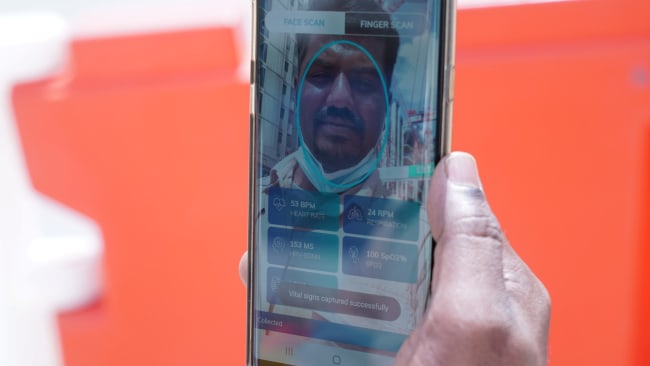Latin America stands at a crossroads concerning health. The COVID-19 pandemic triggered extraordinary levels of anxiety, burnout, depression, and posttraumatic stress disorder among health-care workers—a situation that has damaged health systems. The pandemic also revealed how inequitable, overburdened, and under-resourced those systems were before the pandemic. Now, Latin American countries must confront emerging health challenges, including an aging population, the effects of climate change, the growing burden of noncommunicable diseases, escalating poverty, and increased substance abuse.
The scale and severity of those problems mean that Latin American countries should pursue traditional and innovative reform strategies. As it has done for decades, the Pan American Health Organization is working to improve regional cooperation and national capabilities.
But interest in health-sector reforms includes a new strategy—harnessing artificial intelligence (AI) in Latin America. The Group of Twenty (G20) noted that AI "holds immense potential to bridge health disparities, particularly for underserved populations," including by personalizing care, enhancing diagnostics, improving operational efficiency, boosting patient engagement, and expanding telemedicine.
Latin American governments, experts, and companies are focusing more attention on AI's promise in strengthening health systems. Tapping AI capabilities in the health sector requires building a foundation for AI applications and mitigating the technology's potentially disruptive impacts.
AI and Health Care in Latin America
The development of AI is set to revolutionize health care as it becomes integrated into clinical and public health practices—a shift occurring around the world. From diagnostics to drug discovery, no aspect of medicine is immune from being transformed by AI.
From diagnostics to drug discovery, no aspect of medicine is immune from being transformed by AI
AI could enhance the quality of health care and expand access to services across under-resourced areas. Health systems can leverage AI through portable tools, robotics, and predictive models, which can ease the impact of personnel shortages and improve efficiency. AI-powered technologies could also reshape responses to issues linked to social determinants of health and strengthen efforts against infectious diseases and natural disasters in a warming world.
Awareness of AI's potential for health systems in Latin America is growing. Health ministries in Argentina, Brazil, Chile, and Colombia have launched initiatives to foster the use of AI. Machine-learning techniques applied in academic research have already produced remarkable results for the region's urban health.
AI's potential to advance diagnostics has gained particular attention. Pathologists convened by the Americas Health Foundation concluded that AI-assisted digital pathology can strengthen health care by enhancing diagnostic capabilities and helping alleviate the region's shortage of pathologists.
Oncologists believe that AI can improve the diagnosis and treatment of cancer, a significant problem in Latin America. Radiologists are excited about AI, as seen in the creation of an AI laboratory for innovation in radiology by Dasa, one of Brazil's largest health-care companies specializing in medical diagnostics. AI technologies can contribute to strengthening diagnostic standards, increasing the quality of clinical data, and supporting more equitable regional access to radiological services.
Brazil currently leads the region on AI and health care with an ambitious AI strategy that promotes domestic research and development. Its scientists, for example, have participated in studies that show AI's potential in discovering new antibiotics. As host of this year's G20 meeting, Brazil is featuring digital health, including AI applications.
The expanding Latin American attention on AI for health care is creating opportunities for foreign companies. Countries in the region have shown interest in digital health-care technologies developed by Chinese companies, and collaborations are under way. Those companies are developing and promoting new, affordable AI-enabled laboratory equipment and medical devices to improve health services that are attractive in Latin America. As a Danish report concluded [PDF], China has a "strategic focus on AI in healthcare." Most governments in the region expect that AI cooperation with China will grow.

My conversations with health leaders in Latin America indicate that U.S. tech giants Google and Microsoft are also starting AI projects with health agencies and hospitals. As is the case with Chinese companies, acquisitions of laboratory equipment and medical devices manufactured in Germany, Japan, and the United States are the main driver for adopting AI applications for health-care purposes, such as diagnostics.
The momentum toward AI-enhanced health care creates the opportunity to build resilient e-health services in Latin America. Achieving that objective requires an ambitious roadmap that involves enhancing the quality of data sources, developing AI models for different health-care needs, training medical personnel, and establishing policies to ensure accountability, confidentiality, equity, and trust. As recent research has underscored, strategic collaboration with governments and companies in developed nations will be important in advancing the region's capabilities and performance in applying AI to health care.
AI Realism
The growing interest in AI-enabled health applications has heightened awareness of technological, financial, workforce, and political challenges that Latin American countries face in harnessing AI to advance health reforms.
Latin America lacks the data-intensive and information-technology capacities within health sectors to maximize AI. The region has few sufficiently large, high-quality, interoperable, and easily shareable health datasets to train AI applications. Although internet penetration has reached 70% in Latin America, connectivity, cloud- and other computing capacities, download speeds, and AI-specific capabilities differ within and across health systems. The region has only nine supercomputing systems, one in Argentina and eight in Brazil. By contrast, China has 80.
Without investments in the technological infrastructure needed for AI, the potential to transform health systems will be limited. In terms of investments, Brazil and Mexico lead the way. Brazilian President Lula da Silva has launched a four-year, $4 billion plan across government ministries to promote infrastructure development, training, public-sector adoption, business innovation, and regulatory and governance improvements for AI.
The scale of the investment needed across Latin America, however, underscores financial challenges that most countries in the region face in advancing AI-enabled health reforms. In addition, integration of AI into Latin American health care faces two financial challenges. Health-care providers need financial incentives to implement AI technologies. Financial support for patients in poor communities to access AI-powered health services, such as telemedicine, is also important.
Without investments in the technological infrastructure needed for AI, the potential to transform health systems will be limited
Unfortunately, growing populations, aging societies, chronic diseases, and other problems are increasing health expenditures. Most countries in Latin America are experiencing unsustainable debt and are nearing insolvency—fiscal constraints that could limit catalytic public investments in AI-based health reforms. The private sector might also struggle to invest in AI for health-care purposes. Private-sector seed-to-growth investments in start-ups in Latin America fell 84% between 2021 and 2023, digital technology being one of the most affected sectors.
In terms of the work force, a limited pool of qualified experts impedes scaling up AI's role in health care in Latin America. Only three countries have public AI-training programs, and only Brazil integrates AI into its national school curriculum—facts that help explain why AI competencies of the region's labor force lag those in high-income countries. For public health services, the migration of medical professionals to specialized practices or the private sector to escape poor working conditions and earn better salaries aggravates the problem.
Politically, a regional AI strategy could help turn the burgeoning interest in harnessing AI for health care into a transformative movement. Stronger regional cooperation could help countries in Latin America address ethical and regulatory challenges and, as a Colombian minister recently argued, move "from being consumers of technology to producers."
COVID-19 has triggered global interest in strengthening regionalism as an approach to improving public health. For example, the African Union and European Union have launched efforts to strengthen public health among their members. To date, no such regional ambitions and initiatives have emerged in Latin America on public health or AI-enhanced health care.
New Technology, Perpetual Moral
Achieving a healthy society requires communities to rise above selfish and partisan interests and commit to collective action. Latin American countries need large-scale, long-term health reforms that deliver quality services efficiently, equitably, and sustainably. Advancing such reforms will require different strategies because no one approach can fix all the problems.
The potential for AI to support reforms should be an important catalyst for national policies and regional cooperation that allow the peoples of Latin American to transcend the politics that, in the past, harmed individual well-being, public health, and social development.













